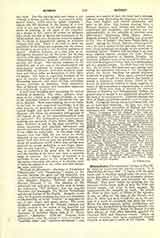

Aeterni Patris, the APOSTOLIC LETTER, of Pius IX, by which he summoned the Vatican Council. It is dated Rome, June 29, 1868. It begins with the same words, and is therefore quoted under the same title, as the Encyclical of Leo XIII on scholastic philosophy. But their purpose and substance are very different. This letter begins by pointing out the provision which Christ made to have His faith and morals taught, and unity in both secured. He commissioned the Apostles to teach. He placed St. Peter at their head, as Prince of the Apostles. It was an office for the sake of the Church, and, after St. Peter had died, should live on in the persons of a series of successors, one after the other. Hence the same supreme power, jurisdiction, and primacy are transmitted to the Roman Pontiffs who sit in the Chair of Peter. Hence the Roman Pontiffs have always, as their office demands, guarded the Christian faith and Christian morals. Hence, as occasion required, they have summoned General Councils to meet grave needs of the Church. Then follows a rapid review of the existing dangers to faith and morals, to remedy which Pius IX issues this letter summoning the bishops, and others whose right or duty it is to be present, to a General Council to meet in the Basilica of St. Peter in Rome, on the 8th of December, 1869, the anniversary of the definition of the Immaculate Conception. This letter must not be confounded with the Decree “Pastor Aeternus” which was issued by Pius IX at the close of the Council, the following year, and in which the dogma of Papal Infallibility was defined.
M. O’RIORDAN.

